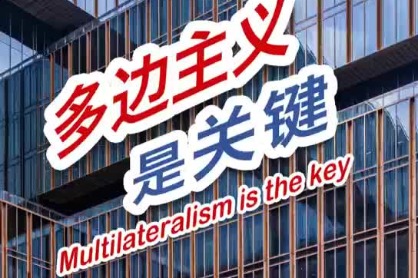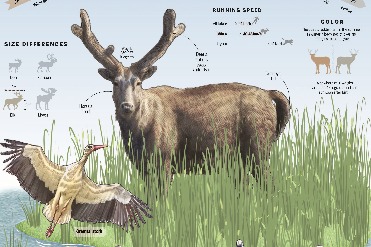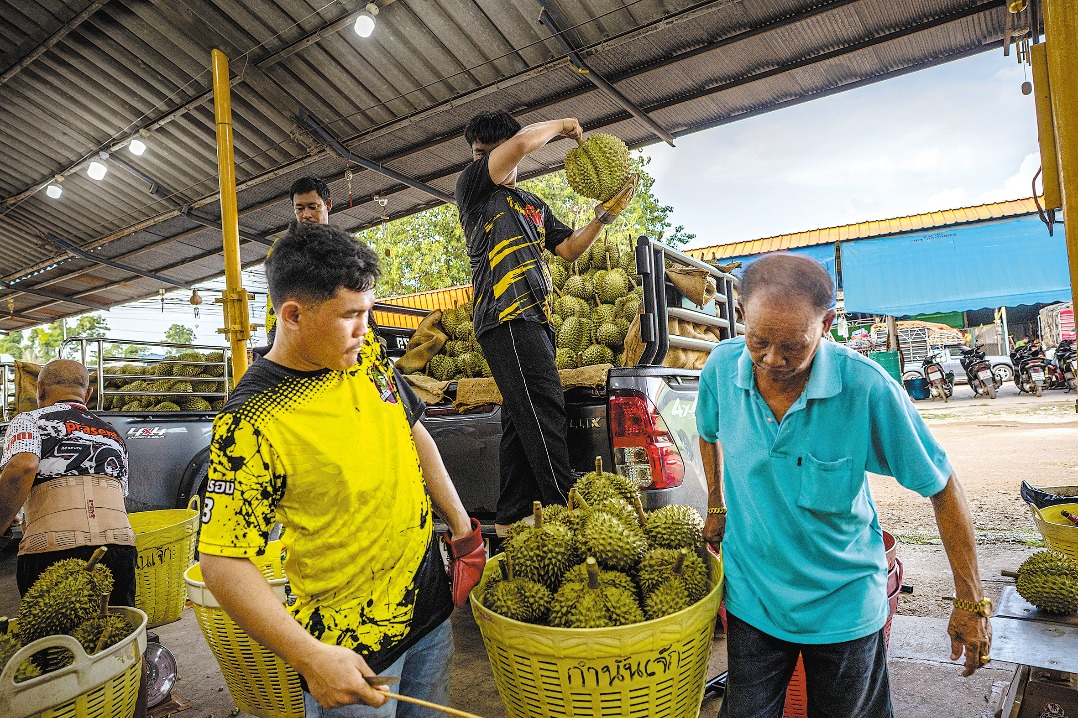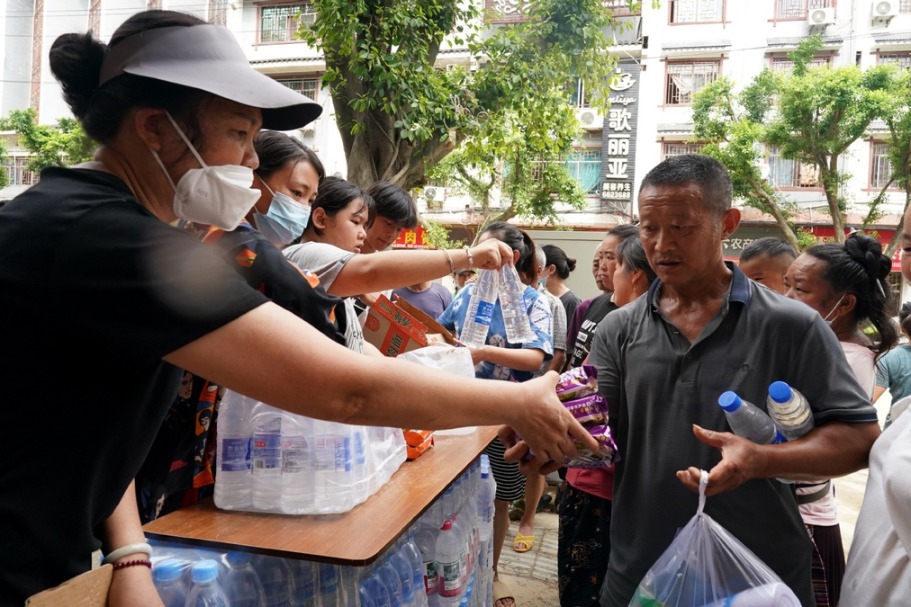Ensure green is gold

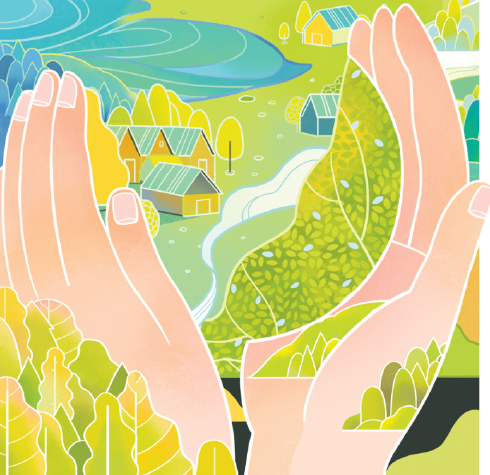
Innovative measures needed to overcome the existing constraints on environmentally sustainable poverty relief efforts
Green development underpins China's poverty relief endeavors and the sustainable development of rural areas. Since the launch of reform and opening-up in the late 1970s, China has lifted 770 million people out of poverty, accounting for over 70 percent of the world's total.
China is the first developing country to achieve the poverty relief target of the United Nations Millennium Development Goals.
However, green poverty relief measures still face constraints from the macroeconomic environment, ecological resources, and the pressure to find a balance between the economy and environmental protection.
First, the Chinese economy faces downward pressure. From 2013 to 2019, the country's annual GDP growth rate dipped from 7.8 percent to 6 percent, leading to the new normal development stage in which local authorities face financial pressure to fund green poverty relief efforts, leading to many programs being shelved or delayed. Meanwhile, the slower economic growth and the outbreak of the novel coronavirus have hit eco-tourism and leisure tourism, reducing the incomes for households in impoverished areas.
Second, green poverty alleviation programs do not yield instant benefits and require persistent and long-term efforts. In addition, the economic benefits derived from green industries will be partially re-invested in the conservation of ecological resources, which means less immediate returns.
Third, natural resources, such as rivers, air and forests, are not confined to a specific area, and there is inconsistency in conservation and development efforts by different administrative bodies, while the boundaries are blurred for ecological protection law enforcement.
Faced with these constraints, we need to innovate the green development philosophy in poverty relief work and genuinely implement the principle of "green is gold" for the long term. Since the 18th National Congress of the Communist Party of China, this philosophy has been guiding the country's poverty reduction efforts, which has helped to continuously improve related policies. While seeking a better living environment for its impoverished population, the country has also striven to rehabilitate the ecosystems.
Green poverty alleviation is difficult to carry out in some areas because of the mismatch between external environment and internal development. Impoverished people from areas with poor ecological resources should be resettled in more habitable places where they can find development opportunities to boost their endogenous capabilities.
Research shows that if impoverished people in Guizhou province are resettled, most of their old farmland and residential land can be returned to forest or grassland. Supposing each resettled villager had 0.1 hectare of farmland and 140 square meters of residential land, a total of 227,000 hectares of land could theoretically be used for industrial development or returned to nature, achieving dual effects.
The authorities in regions with a good natural environment where industrial development is banned or where it is limited for the sake of ecological conservation should extend ecological compensation and arrange to transfer labor to make up for their hidden losses.
On top of that, eco-agriculture, eco-tourism, and eco-culture can be developed to help turn green resources into tangible economic benefits, boosting sustainable development in impoverished areas while preserving the ecological environment.
With China on the fast track of urbanization, a new green anti-poverty pattern needs to be established in which there is the free flow of production factors between rural and urban areas.
Rural areas with a good ecological environment should develop eco-tourism products and upgrade services to cater to the needs of high-end consumers. Eco-farming is a form of modern agriculture, which combines agricultural production and tourism by taking advantage of green resources in rural areas. Moreover, China's rich ethnic cultural resources could be integrated with ecological resources to create new tourism products offering travelers a richer experience.
There are several aspects China should pay attention to while promoting green poverty relief.
First, the philosophy of green development should be upheld in the long run. Its significance in long-term human development and in realizing the targets of poverty relief and rural vitalization should be fully understood at the national level. Efforts should be made to offer green poverty relief training to grassroots officials and create new rural entities such as professional cooperatives, family farms and rural enterprises.
Second, the red line for ecological conservation should never be crossed and areas with a poor ecological environment should be protected. Impoverished people living in inhabitable places should be resettled in areas with better environment, more convenient transport and bigger room for industrial development, and follow-up support should be given to them. More efforts should be made to publicize exemplary cases of green poverty reduction to inject more impetus to the sustainable development of areas that have shaken off poverty.
Third, regional barriers should be broken down. A cross-regional interconnected mechanism for green poverty relief should be established based on the demarcation of contiguous impoverished areas to form a new model for poverty reduction cooperation with regional characteristics, and reduce the costs of poverty relief. The importance of the flow of people between rural and urban areas should be recognized to take advantage of rural-urban integration and facilitate the use of green resources, for example, by developing distinct green agricultural products using e-commerce platforms.
Feng Danmeng is an assistant research fellow of the Research Center for Rural Economy at the Ministry of Agriculture and Rural Affairs. Zhang Qi is director of the China Institute of Poverty Reduction at Beijing Normal University.
The authors contributed this article to China Watch, a think tank powered by China Daily. The views do not necessarily reflect those of China Daily.

















